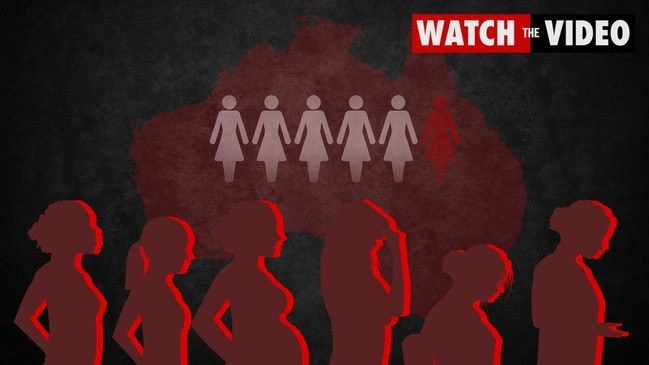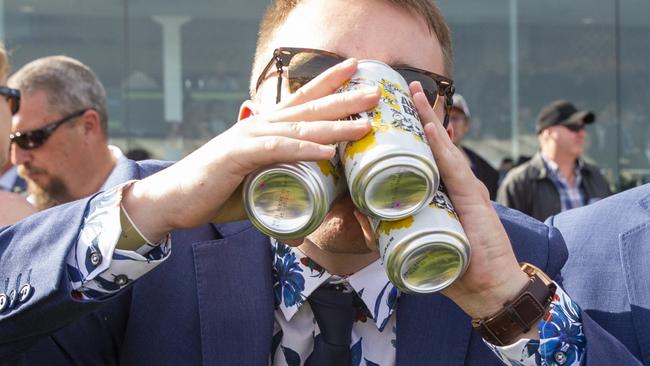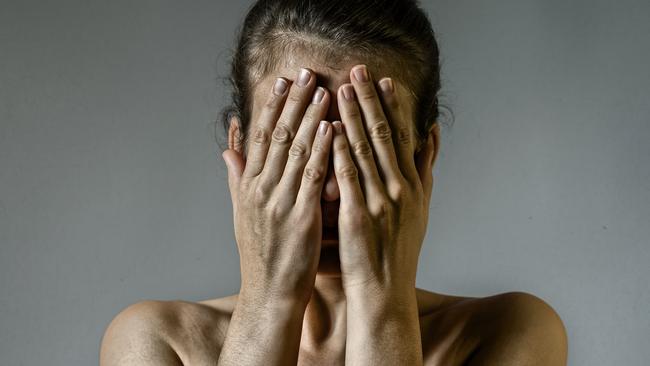‘No excuse’ for increase in violence against women on Melbourne Cup day
For almost 150 years, the first Tuesday of November has signified “the race that stops a nation” - but there’s a dark side that has nothing to do with horses.

Real Life
Don't miss out on the headlines from Real Life. Followed categories will be added to My News.
For almost 150 years, the first Tuesday of November has signified one thing in Australia: “the race that stops a nation”. And tomorrow, despite the ongoing presence of Covid-19 in Victoria, will be no different.
Thousands of people, no matter the city they’re in, will don their fancy clothes and fascinators, knocking off work early to pop the champagne and have a punt.
But at 3pm – the same time as when spectators gather around the TV to witness one of our nation’s most revered sporting events, hoping that the horse they backed takes out the coveted 18-carat Cup – Australia will become a much more dangerous place for women and children.
First responders will be preparing. Helpline employees will be waiting for the phone to ring, with calls surging in the not just hours, but days that follow.
“Research has found that there is often a spike in men using violence against women during and after major national sporting events like the NRL State of Origin, the AFL Grand Final and the Melbourne Cup,” Our Watch CEO Patty Kinnersly told news.com.au.
In 2017, family and domestic violence counselling service, 1800RESPECT, reported a 17 per cent increase and calls and online conversations during the Melbourne Cup.
The Australian Institute of Criminology states there is a higher number of reported domestic violence incidents on Cup Day, while in 2018, former Victoria Police commissioner Graham Ashton said it was one of three days each year that cops brace for an increase (at least 20 per cent) in family violence incidents. The only other occasions that saw this kind of surge were New Year’s Eve and the AFL Grand Final.
That same year, a La Trobe University study found a 40.7 per cent average increase in domestic violence and 71.8 per cent increase in non-domestic assaults across NSW on State of Origin game days between 2012 and 17.

“Often people, in families that don’t often get together, get together on those occasions and issues can surface with a bit of help from the alcohol,” Mr Ashton told 3AW radio.
“Family violence is what flows.”
Sporting events like the Cup, Ms Kinnersly explained, can lead to “the disappointment of your horse losing, a few too many beers, or stress”.
But none of these should lead to — or are an excuse for — violence against women.
“We know that these events coincide with high levels of alcohol consumption, and this can certainly be a factor that increases the likelihood or severity of violence in some circumstances,” she said.
“But alcohol itself does not drive violence against women. Not all people who drink are violent, and many people who are violent do not drink.
“Violence against women is driven by gender inequality and the perpetrator’s need for power and control over their victim.”
What needs attention, Ms Kinnersly added, “is when these kinds of factors – sporting events or stress, or alcohol consumption – interact with harmful gender stereotypes and ideas about masculinity – particularly those that centre on idea of male conquest and aggression”.
“We know that alcohol can weaken the kinds of ‘prosocial’ behaviours that focus on empathy, respect, care and concern for others. We also know that this weakening of positive attitudes and behaviours occurs in some men’s peer groups – which is the context in which many men watch sporting events,” she said.
“When these factors are combined, in a social context where there are already disrespectful ideas about women, or harmful forms of masculinity, big sporting events such as this can trigger an increase in men’s violence against women.”
Across the country, the ongoing Covid-19 pandemic has been witness to a well-documented increase in women’s experiences of violence.
And while the long-awaited easing of restrictions in states like Victoria and NSW will be cause for celebration for thousands, for some, “the lifting of restrictions may trigger an escalation of abuse, as perpetrators use violence in response to the loss of control they have been able to exert in the home during lockdown”.
Last year, family violence support service Wayss, in Melbourne’s southeast, said that the Cup set a grim “record” for the agency — 75 call-outs from Victoria Police in that one area, on that one day.
The wave of violence pushed the list of women desperately waiting for their cases to be taken on from about 80 to 125.

“During the Melbourne Cup, we may see in increase in harmful alcohol use, and the re-emergence of harmful men’s peer group behaviours, amid social norms that position alcohol use as a coping mechanism, and men’s drinking as an excuse for violence,” Ms Kinnersly explained.
“There is no doubt that stress-related factors associated with the pandemic can all compound or exacerbate the underlying conditions that lead to violence against women, but they do not cause violence against women, and they do not excuse it.”
So tomorrow — on any day — anyone who is impacted by sexual assault, family or domestic violence is urged to call 1800RESPECT on 1800 737 732 or visit 1800RESPECT.org.au. If you are in immediate danger, please call triple-0 for the police and ambulance.
And men who are concerned about their behaviour should seek support from the Men’s Referral Service at 1300 766 491 and know that there is help available.
“In order to prevent violence from occurring during major sporting events, like Cup Day, we must address not only the reinforcing factors, like harmful alcohol use,” Ms Kinnersly said.
“But more importantly, the underlying issue of gender inequality, the unequal distribution of power and resources across our society, and the harmful ideas about masculinity that are such a driver of men’s violence against women across the board.”
Originally published as ‘No excuse’ for increase in violence against women on Melbourne Cup day





